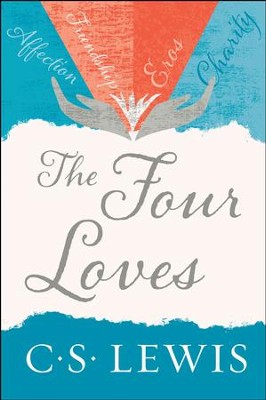by Dr. Kraig Martin, associate professor of Bible
Alfred Lord Tennyson, in “The Charge of the Light Brigade,” immortalizes the British soldiers who fought against the Russians in the Crimean War, specifically in the Battle of Balaclava.
… Cannon to right of them,
Cannon to left of them, …
A Christian writing about patriotism should feel a little like that. To the right explodes the cannonball of nationalism, a form of idolatry. To the left, a lack of love, gratitude and fidelity. I recently asked a student, “Why do you love the United States?” “Well,” she answered, “I don’t. I don’t think I should. My citizenship is in heaven, and my devotion is for God.” She is safe from one of the cannons, but in mortal danger from the other. She should read C.S. Lewis.
 Early in The Four Loves, Lewis writes that love of country “becomes a demon when it becomes a god,” and he sympathizes with my student, recognizing the temptation to think that love of nation “is never anything but a demon.” “But,” he writes, if we reject it as only a demon, then we “have to reject half the high poetry and half the heroic action our race has achieved. We cannot keep even Christ’s lament over Jerusalem.” So Lewis thinks my student is mistaken, and that there does exist a properly ordered love of one’s nation. But what does that look like? And what grounds that love?
Early in The Four Loves, Lewis writes that love of country “becomes a demon when it becomes a god,” and he sympathizes with my student, recognizing the temptation to think that love of nation “is never anything but a demon.” “But,” he writes, if we reject it as only a demon, then we “have to reject half the high poetry and half the heroic action our race has achieved. We cannot keep even Christ’s lament over Jerusalem.” So Lewis thinks my student is mistaken, and that there does exist a properly ordered love of one’s nation. But what does that look like? And what grounds that love?
For Lewis, love of the abstract, universal thing (nation or country) is grounded in love of the concrete, particular thing (my dad, Ken, and my mom, Diane; my home on Bluebonnet Street, down the gravel drive with the Aggie mailbox; my town on the banks of the Little Red River). He writes, “First, there is love of home, of the place we grew up in … love of old acquaintances, of familiar sights, sounds and smells.”
From our love of our family and our town and our dirt and our trees comes a love of our traditions and our ways of life. Lewis writes, “With this love for the place there goes a love for the way of life; for beer and tea and open fires, trains with compartments in them and an unarmed police force and all the rest of it; for the local dialect and (a shade less) for our native language. As Chesterton says, a man’s reasons for not wanting his country to be ruled by foreigners are very like his reasons for not wanting his house to be burned down; because he could not even begin to enumerate all the things that would be lost.”
We shouldn’t forget the cannons of nationalism, for it is hard to overstate the damage caused by making an idol out of love of country. Whole communities have been wiped out by this deadly force: homes razed, fields burned, parents killed in front of their children’s eyes. But what good is it to save homes and fields and parents if we are forbidden from loving our homes or fields and taught that we owe no debt of gratitude to our parents or the communities that formed us? We don’t love our homes because they are better than all the other homes, and we don’t love them on the condition that they excel, no more than God loves us on the condition that we excel. We love them simply because they are ours. And they do, after all, have beauty. We see that beauty. We love these things. We are grateful for these gifts, and for them we worship God, the giver of the gifts.